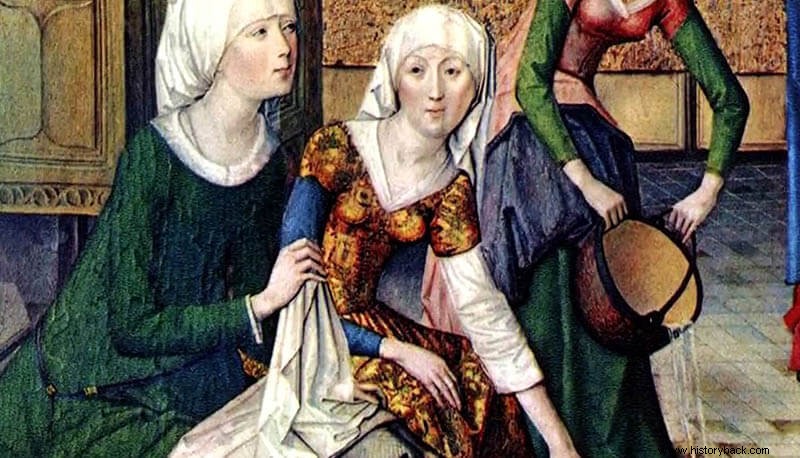
Women in the Middle Ages
The following article, Living in the High Middle Ages:a survival manual, was sent to Pills of History by Mauro Napoliello , a history and writing enthusiast.
In thanking him for his cooperation, I warmly invite you to read the post, which is basically a short but comprehensive excursus on the peculiar aspects of life in Italy in the middle of the Middle Ages.
Happy reading.
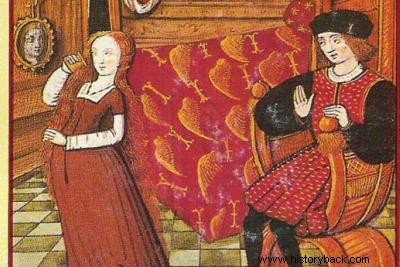
Living in the early Middle Ages:family scene
Imagine you are in the High Middle Ages, on Italian soil.
We are now far from the glories of the Roman Empire, the peninsula has been worn down far and wide by political and social changes, continuous invasions, diseases and population decline , complete the picture.
Living in the early Middle Ages:condition of the population, countryside and city
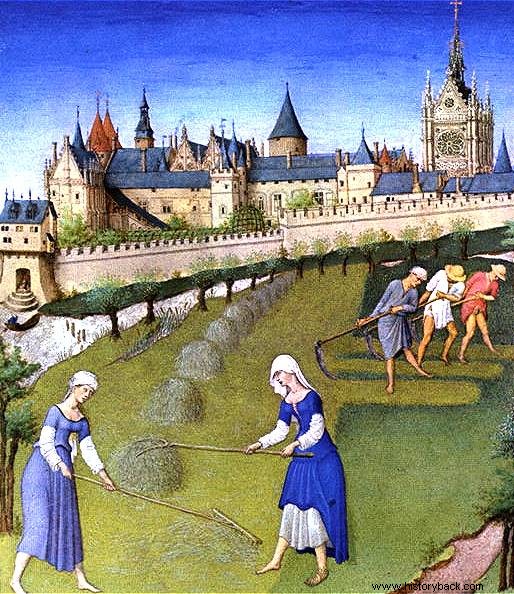
I work in the fields in the Middle Ages
A large part of the population lives in the fortified estates of the local lords , much safer than cities in decay.
Even Rome, for centuries the capital of the ancient world, it is in ruins.
As for the cultural side of the moment, ignorance is rampant.
The only custodians of human knowledge are the monks refugees in monasteries, the only places where the ancient texts will be kept.
Small mention for the area of the Eastern Roman Empire :within the borders of Constantinople, basically, you don't have too many headaches.
The emperor is still in his place and the corporate mechanisms are all functioning.
It will be here that the Arab world will learn the basics of their own culture.
Having said that, analyzing the situation under various aspects, it is clear that if you lived in feudal Italy, you would have understood why those periods were baptized dark centuries.
everyday life it was obviously different based on social status.
The nobles they were the most privileged part.
Those who owned a fiefdom collected taxes from his servants.
In return, he undertook to fortify the property and in case of enemy attacks, to defend the settlers with his soldiers.
The peasants they worked in the large estates, the efforts were many and the income rather meager.
Living in the early Middle Ages:diseases and medicine
social disparities they have always been enormous over the centuries, but the poor and the rich had one thing in common: disease.
Skills in the medical field of the early Middle Ages were scarce, people died of dysentery for example.
Even the nobles, although they could afford the treatment, had to deal with totally unprepared doctors , there were no drugs and the human body was not known.
Since ancient man had chosen to live in cities, from a medical point of view, he had forgotten those
primitive knowledge, that he used to heal some diseases.
We will have to wait until the discovery of America to rediscover thanks to the indigenous, those ancient notions that will lead man to modern medicine.
spices were used as medicines, even pearls and crushed precious stones, since the thought of the time was that the more precious the material was, the greater its effectiveness would be.
At this point it is easy to deduce that probably if you did not go to the doctor, he would survive more in certain cases.
Medieval man had a life expectancy that was not the best , not only from a medical point of view.
Food and war
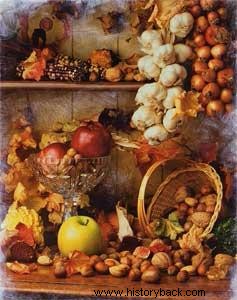
Food in the Middle Ages
The diet of the farmer it was based on what the land gave him, or rather what the landlord left him.
If he was lucky and there was a forest nearby, maybe he could have the luxury of hunting some small game and picking up some mushrooms.
Different speech for the nobles.
The meat it was the food par excellence in their diet, so much so that people easily died of diseases caused by this type of diet, such as gout.
What if you had to go to war?
Again, social difference was king.
It happened that the duke had to wage war against another kingdom and since there were no more regular armies since Roman times, the feudal lords, nobles and peasants in tow were called up.
Those who had the financial means could afford armor, weapons and horses and the less well-off made do with their own means, for good and better.
The sovereigns did not provide equipment to go to war, we will have to wait until the modern era to see regular armies with uniforms and weapons all the same.
Hygiene and the law
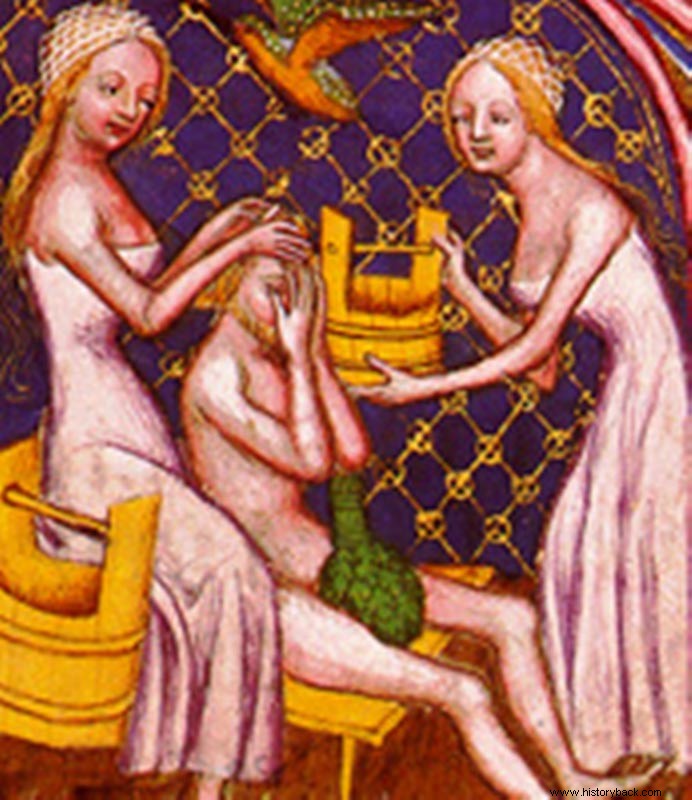 Regarding hygiene we don't talk about it, we didn't pay much attention to this aspect, we washed little and there were no bathrooms.
Regarding hygiene we don't talk about it, we didn't pay much attention to this aspect, we washed little and there were no bathrooms.
Due to social barbarism, the sewers in the cities overflowed, you no longer had the knowledge to make these services work.
Another element that distinguishes this period are the laws and their application: the system was the barbaric one, the law of retaliation, for damage received, a punishment of equal measure was inflicted and the dead often escaped.
The judge he was the local lord who had to resolve conflicts within his fiefdom, written laws were not followed, knowledge was passed on verbally.
Religion
Finally, an important feature is found in the religious sphere.
We are in a period where Christianity it is professed throughout the Western world and medieval man is deeply devoted and superstitious.
The clergy it is respected, the rulers place their hopes in the hands of the bishops and the pope; the power to promise
earthly and above all otherworldly protection makes the papacy over the centuries a real rich and powerful state funded by nobility and plebs.
To give an example of how the Church was powerful and influenced the political framework of Europe, just think of the events that brought down the Lombard kingdom.
In the mid-eighth century AD, Pope Adrian I , under the threat of the Lombard king Desiderio at the gates of the city, aware of not being able to repel such an army, he called Charlemagne for help.
The king of the Franks, at that time, was at war with the Saxons, but at the call of the Pope he quickly headed for Italy, this is because the sovereign wanted to remain under the ecclesiastical protection of Rome.
The result was the annihilation of the Lombards.
Living in the early Middle Ages:conclusions
In summary, the common man in the High Middle Ages lived a very hard life, he placed his hopes on religion and a good harvest.
He traveled little, because he was dangerous, if he went to war he would manage as he could and if he didn't go to the doctor it was better.
Survival Manual , is a somewhat ironic title, to play down those centuries of human history, where man was forced to restart from an almost primitive condition, which however will be the foundations of the Renaissance ( Article written by:Mauro Napoliello ) ( Photo from :skuola.net, medioevo.altervista.org, paneefocolare.com, vanillamagazine.it and sutori.com.
Bibliographical references
Idro Montanelli, Roberto Gervaso Italy in the dark ages:the Middle Ages up to the year 1000 , Rizzoli 2018
Piero Angela, Alessandro Barbero Behind the scenes of history, daily life through time best Bur
